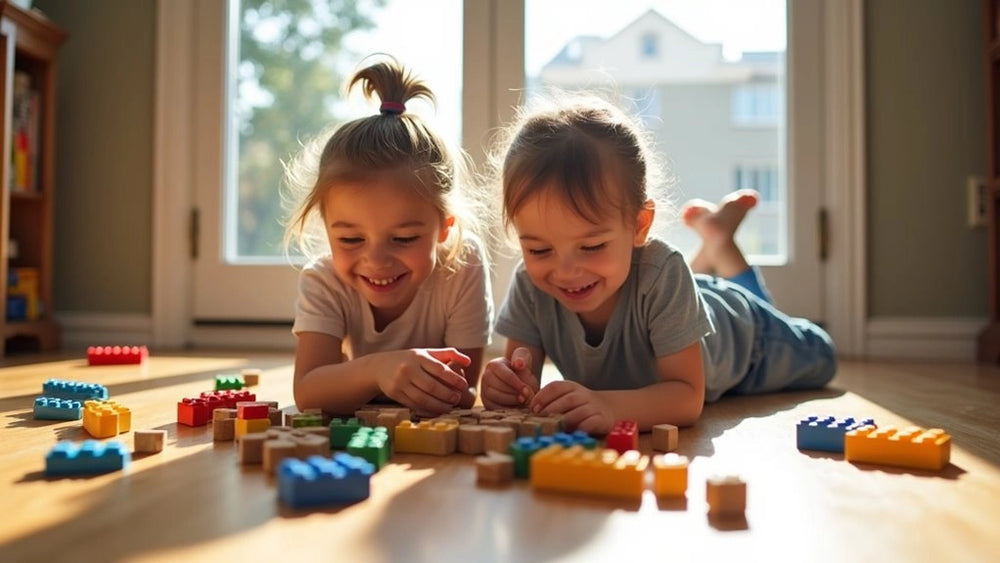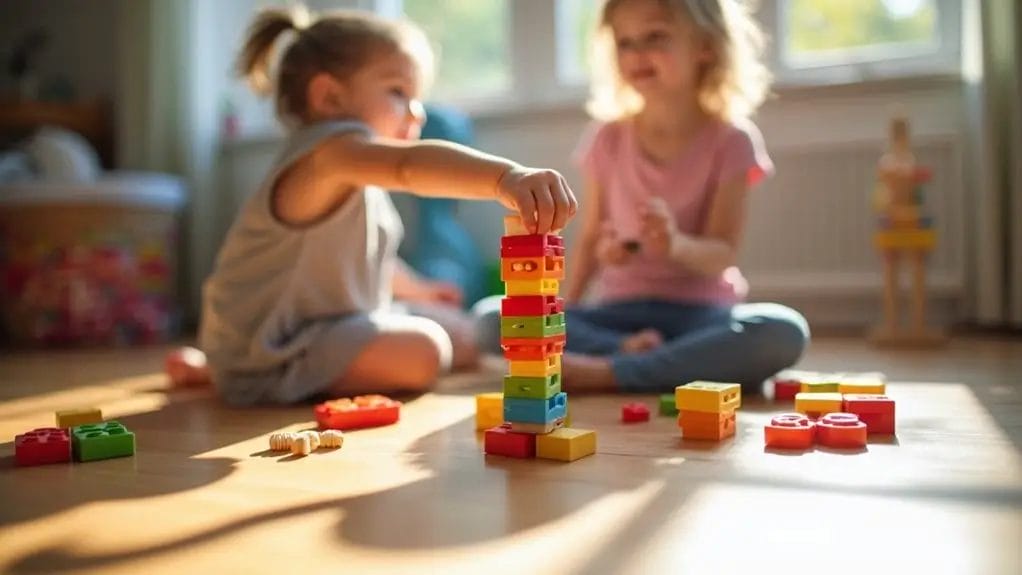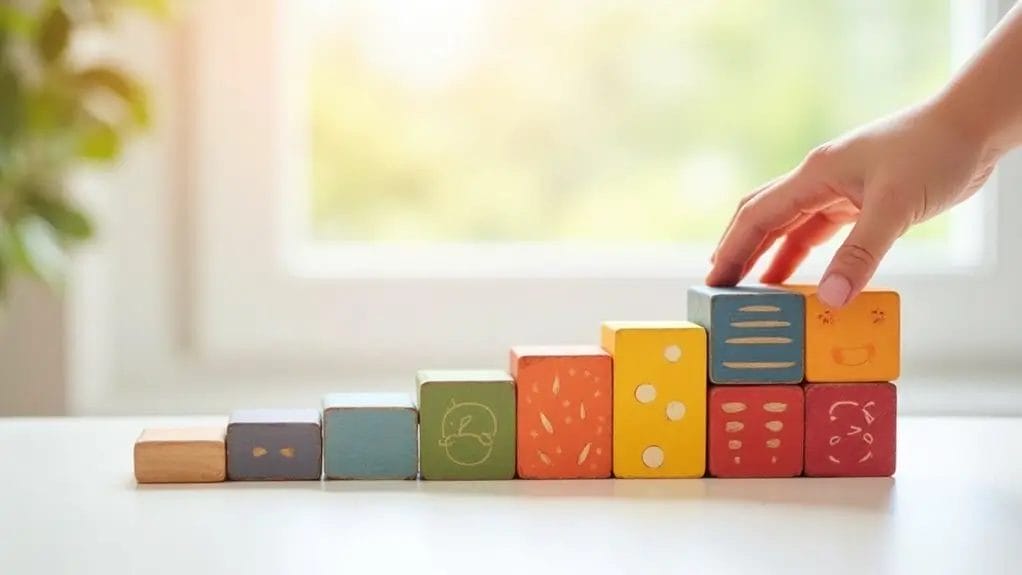
Why Is the Power of Play So Important to Help Children and Adults?
Playtime is a magical experience for children. But its importance extends far beyond mere enjoyment. Play is a crucial element in our lives. It is a gateway to learning, growth, and emotional well-being at any age.
Whether you’re constructing with blocks, participating in sports, or tackling puzzles, you’re honing essential life skills. This article will uncover the profound impact of play on personal development. It'll also highlight why understanding its significance is vital for everyone.
Key Takeaways
- Play facilitates cognitive development by building neural pathways. It improves problem-solving abilities and strengthens memory retention during learning experiences.
- Physical and active play develops crucial motor skills. It also promotes better attention spans and academic performance.
- Play fosters emotional intelligence and social skills. It does this through sharing, negotiating, and learning to understand others' perspectives.
- Regular play acts as a natural stress reliever. It improves mental health and creates meaningful social connections.
- Play supports creativity and adaptability. It helps both children and adults develop essential life skills for personal growth.
Understanding the Concept of Play

Play isn't just fun and games. It's a natural, self-directed activity where you explore, create, and learn through various interactions with your environment and others.
Definition of Play
Play involves joyful discovery and creative expression. It represents a voluntary and intrinsically motivated activity that children naturally pursue.
Play doesn't typically involve structured goals. It allows kids to explore and learn through spontaneous interactions with their environment and peers.
When you observe children at play, you'll notice they engage in various forms. These include physical activities, pretend scenarios, and object manipulation. The different play types contribute to their cognitive development, emotional growth, and social skills.
It's worth noting that play isn't just a random activity. The United Nations recognizes it as a fundamental right, highlighting its vital role in child development.
The way children play is often shaped by their cultural context. This influences their learning of valuable social norms and helps them develop essential life skills.
Different Types of Play
Different types of play influence a child's growth and learning during childhood. Each form serves a unique purpose in building important life skills and abilities.
- Physical play develops motor skills and coordination.
- Outdoor play provides the opportunity to improve sensory integration skills.
- Imaginative play enables children to explore different social roles and scenarios. It boosts their creativity and problem-solving capabilities.
- Through social play, they'll learn essential skills like sharing, negotiating, and showing empathy. All of these skills are significant for building lasting relationships.
- When children engage in pretend play, they're not just having fun. Instead, they develop cognitive abilities, emotional understanding, and social competencies.
You'll notice how these various types of play work together to create a thorough learning experience.
Why Is the Power of Play So Important for Children?

When you watch children at play, you'll notice how they're exercising various aspects of development simultaneously.
Cognitive Benefits of Play
Play is a key driver of cognitive growth during childhood development. It influences how children think, reason, and solve problems. When your child engages in play, they're actively building neural pathways. This will enhance their problem-solving abilities and creative thinking skills.
Imaginative play strengthens your child's cognitive development through hands-on experimentation and discovery. In a safe, pressure-free environment, your child will naturally explore concepts, test theories, and learn from their experiences. This process helps children retain information more effectively. At the same time, it develops the mental flexibility needed to tackle new challenges.
What's impressive is how play enhances your child's attention span and ability for complex thinking. As children engage in interactive play experiences, they develop essential skills. These skills will contribute to their academic success and lifelong learning journey.
Emotional and Social Growth
Play helps children develop essential emotional and social skills. These skills will shape their ability to form meaningful relationships and better understand themselves.
When you observe children at play, you'll notice how they naturally practice emotional intelligence. They share, negotiate, and respond to their playmates' feelings.
Play creates a safe environment for children. They can explore and manage their emotions, building resilience as they encounter challenges.
Through collaborative activities, they learn important social skills like turn-taking and compromise. You'll see their self-regulation abilities grow as they navigate social interactions independently.
The joy of play greatly boosts children's emotional well-being by lowering stress and anxiety.
As they engage with peers, they develop empathy and understanding of different perspectives. These are fundamental components of lasting friendships and successful social interactions.
Physical Development and Play
Physical play also stands as a cornerstone of healthy child development. When your child engages in active play, they develop essential gross and fine motor skills. These skills will be needed throughout their lives.
You'll notice improvements in their strength, coordination, and overall physical health as they run, jump, and explore their environment. Physical play isn't just about movement. It's also helping your child build spatial awareness and extend their attention span.
Children learn to test their physical limits while gaining confidence in their abilities. Through regular active play, they also develop healthy habits that can prevent obesity and promote lifelong wellness.
Whether climbing on playgrounds or playing organized sports, children build a strong foundation for physical development and improved cognitive function.
The Role of Play in Adult Life
When you engage in play as an adult, you'll open up enhanced creativity and problem-solving abilities.
Enhance Creativity and Problem-Solving Skills
Many associate play with childhood activities. But adding playful elements to adult life boosts creativity and problem-solving skills.
Engaging in playful activities allows you to explore new ideas without the fear of failure. This fosters innovative thinking and unique solutions to challenges.
Playful experiences enhance cognitive flexibility. This makes it easier to adapt to new situations and tackle complex problems from multiple perspectives.
Whether in team-building activities or solo creative pursuits, play reduces stress and opens your mind to new ideas. Through collaborative play, you'll enhance your communication skills and create better problem-solving strategies.
Stress Relief and Mental Health Benefits
Research shows that engaging in playful activities triggers the release of endorphins. Endorphins naturally boost your mood and reduce stress levels. Just as play builds emotional resilience in children, adults in recreational activities enjoy better mental health and stronger social connections.
Regular play enhances your cognitive flexibility and problem-solving abilities. It gives you better tools to handle daily challenges.
Whether you join a sports team, pursue a creative hobby, or simply engage in lighthearted activities, you're investing in your emotional well-being.
Studies confirm that adults who make time for play report higher life satisfaction. They also experience lower anxiety levels, making play an essential component of self-care.
Build Stronger Relationships
Play also serves as a powerful catalyst for building meaningful connections with others. With friends, family, or colleagues, you can enhance your communication and language skills. You also build deeper emotional connections.
Through shared experiences and teamwork, you'll break down social barriers and build trust with others. Play fosters empathy by encouraging you to view situations from different perspectives. This helps you understand and connect with others.
Whether through team sports, board games, or creative activities, you're creating an environment that encourages innovation and strengthens relationships. These playful interactions can lead to more genuine relationships and better collaboration.
The Impact of Technology on Play
Technology offers innovative ways to engage children through digital play. But it often lacks rich sensory experiences and physical interactions.
Digital Play vs. Traditional Play
Digital technology continues to reshape childhood experiences. So, the distinction between digital and traditional play has become increasingly significant.
Digital platforms offer interactive engagement. But they can't replicate the thorough benefits of traditional play. Traditional play fosters essential physical activity and face-to-face social interactions.
Free play in traditional settings helps your child develop key life skills, including problem-solving abilities and teamwork. Research shows that excessive screen time can reduce attention spans and increase anxiety levels. In contrast, traditional play offers natural stress relief.
Furthermore, the digital divide creates worrying inequalities. Children without access to technology may miss out on certain play experiences. By prioritizing traditional play, you are supporting your child's holistic development. This approach ensures they gain critical 21st-century skills through hands-on experiences.
Balance Screen Time with Active Play
Today's digital landscape presents unprecedented challenges in effectively managing children's screen time. Children aged 2-5 spend over two hours daily on screens. So, it's vital to establish healthy boundaries that protect their development.
You should prioritize active play over excessive screen time. Research shows that it directly impacts your child's motor skills, social abilities, and cognitive growth.
Children who are more active show better attention spans and academic performance. Following the American Academy of Pediatrics guidelines, you should set clear limits on digital device use. This helps guarantee your child has ample opportunities for unstructured play.
How to Encourage Play in Daily Life
Play can become a natural part of your daily routine. You can set aside dedicated time for both structured and unstructured activities.
Tips for Parents and Educators
Parents and educators are crucial in promoting meaningful play experiences in children's daily routines.
- To maximize play opportunities, create safe spaces. So children can freely explore both indoors and outdoors.
- Prioritize unstructured playtime. You can limit screen time and encourage real-world interactions.
- Integrate playful learning into daily activities through storytelling and role-playing exercises. These activities enhance language development and strengthen peer relationships.
- When setting up play areas, ensure they're accessible and stimulate curiosity. Consider incorporating natural elements and open-ended materials.
- Don't forget to advocate for adequate recess time in educational settings. These breaks are vital for children's development and academic success.
- Remember that quality play experiences lay the foundation for lifelong learning and resilience.
Incorporate Play into the Workplace
Incorporating playful elements into professional environments can boost creativity, innovation, and employee well-being. Adopting playfulness in your workplace can transform team dynamics and improve overall performance.
Consider introducing structured play breaks. So your team can engage in creative problem-solving activities or collaborative games.
These lighthearted moments not only lower stress but also improve cognitive flexibility. Encouraging a playful culture will boost employee engagement and strengthen relationships.
The benefits extend beyond immediate enjoyment. Organizations that embrace play report higher retention rates and increased job satisfaction.
Conclusion
You can't underestimate the power of play in your life, whether you're a child or an adult. By embracing playful activities, you'll boost your creativity, lower stress, and strengthen relationships.
Don't let technology or busy schedules diminish your playtime. Make it a priority to incorporate play into your daily routine. You'll experience improved well-being, sharper problem-solving skills, and a more fulfilling life journey.
FAQs
Why Is the Importance of Play Important?
Play lets you develop essential life skills naturally. It enhances your cognitive abilities, builds social connections, and strengthens emotional resilience. Engaging in activities that make learning fun and meaningful also improves physical health.
What Is the Meaning of Power of Play?
The power of play means you're releasing your potential through engaging activities. It's a fun way to learn, grow, express emotions, build relationships, and develop essential life skills.
Why Play Has an Important Place in Our Life?
Play enriches your life by developing your cognitive, emotional, and social skills. It helps you learn, grow, and build relationships while reducing stress. Through playful activities, you'll gain creativity, problem-solving abilities, and resilience.
What Is the Importance of the Play?
Play promotes the development of important life skills, increases creativity, and strengthens emotional resilience. Engaging in playful activities improves problem-solving skills, builds stronger relationships, and enhances communication.